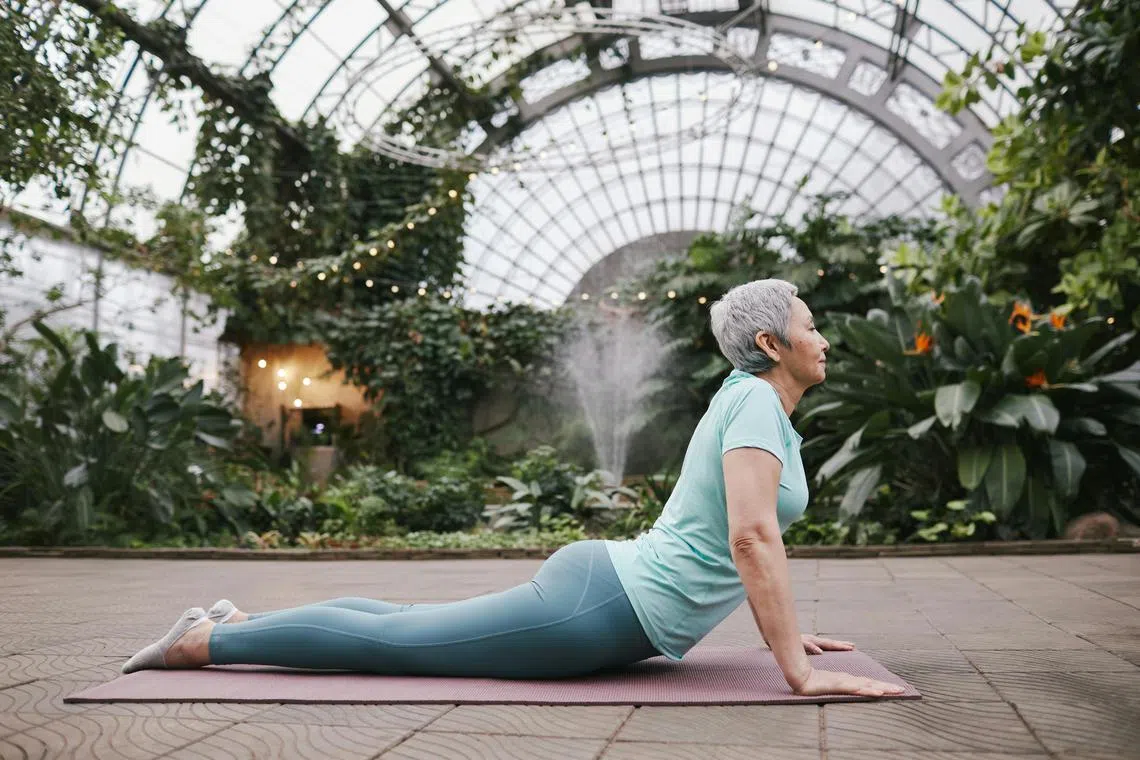IBS: Moving more can help you ‘move’ more easily
While physical activity does not treat irritable bowel syndrome, it improves mood and gut motility
[SINGAPORE] It may not be one of the more obvious strategies for managing irritable bowel syndrome (IBS), but exercise can certainly make a difference.
Physical activity can take one’s mind off problems and decrease stress and anxiety – psychological conditions that are factors in IBS.That’s because exercise is associated with the release of endorphins, natural brain chemicals that can improve mood, reduce perception of pain and lower levels of hypersensitivity.
The other factors that contribute to IBS are visceral hypersensitivity – that is, increased sensitivity to pain in the gut – gut microbiome imbalance and altered gut motility.
“Exercise plays a critical role in mental health, which is closely linked to gut health,” says Dr Alexander Yip, head and consultant, division of gastroenterology and hepatology, department of medicine, Alexandra Hospital. “Many individuals with IBS experience heightened levels of anxiety and depression, which can exacerbate gastrointestinal symptoms.”
Further, regular physical activity stimulates the digestive system, helping to promote more regular and efficient bowel movements – an important factor for those experiencing constipation-dominant IBS.
“Have you ever gone for a run and after a while you feel like you need to go to the toilet? So it’s nothing fancy, but just that your gut motility is improved and that helps reduce constipation.”
While there is no exercise that treats IBS, in general, aerobic exercises are recommended. Depending on one’s abilities, these include brisk walking, jogging, cycling, swimming “and just getting out there, sweating it out” for 30 minutes a day, three to five times a week.
Meanwhile, resistance training, such as bodyweight exercises, helps with core stability and tones the body – which also helps the gut.

And since IBS involves a disrupted gut-brain communication, things such as yoga, taichi and pilates are also good, since they emphasise mindfulness and stress reduction.
So the idea is to gradually increase physical activity so that sufferers can enjoy the benefits of decreased stress, decreased anxiety and improved gut motility.
“Physical activity is safe. It’s low cost. It’s effective,” Dr Yip points out. “And it improves IBS symptoms through your quality of life. So while exercise isn’t a replacement for medical treatment or dietary management, it can be a powerful, complementary approach to managing the condition.”
Decoding Asia newsletter: your guide to navigating Asia in a new global order. Sign up here to get Decoding Asia newsletter. Delivered to your inbox. Free.
Copyright SPH Media. All rights reserved.
